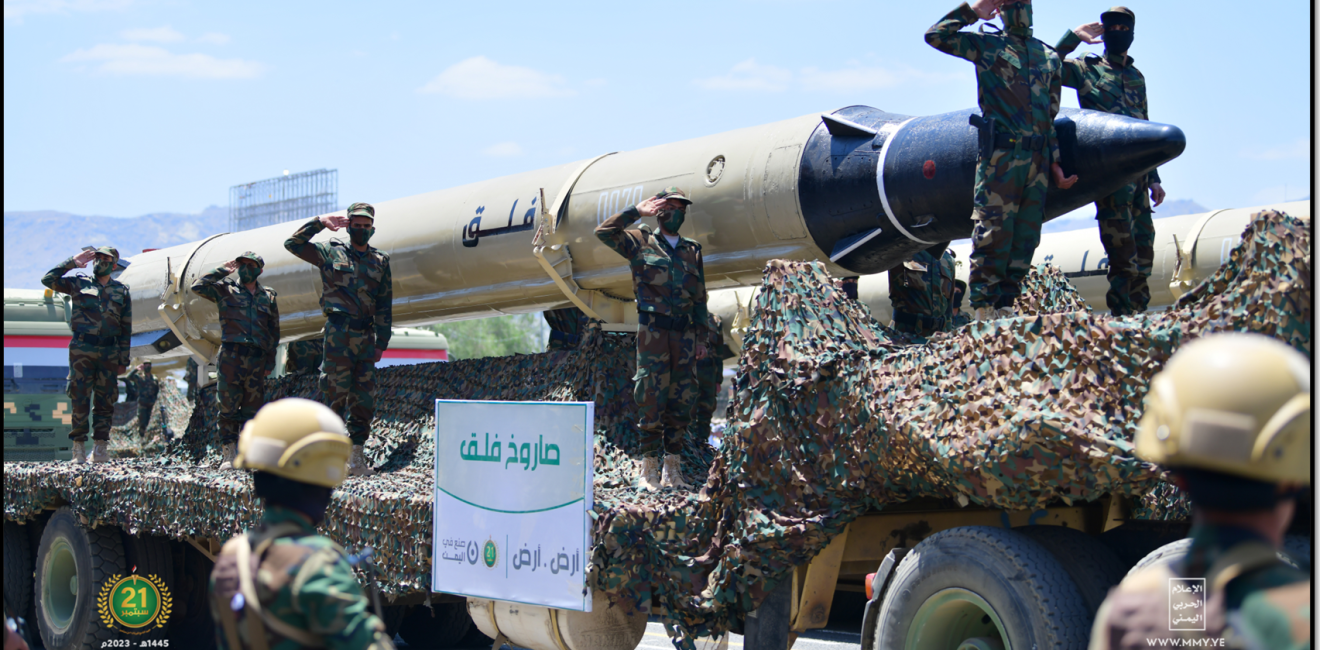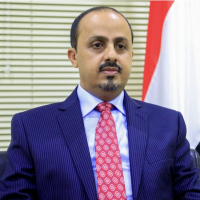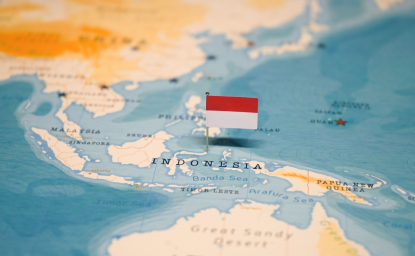The world is facing a growing terrorist challenge posed by the Iranian-backed Houthi militia. This group seeks to expand its political and military influence by targeting global trade and energy supplies and the interests of major powers and spreading chaos in the region on behalf of Iran.
The Yemeni government and countries of the region have repeatedly warned about the danger of the Houthi militia on security and peace in Yemen, the region, and the world since its coup in 2014. However, these warnings have been ignored, allowing this militia’s danger to escalate and impact global security and trade, especially following the wave of terrorist attacks that targeted commercial ships and oil tankers in the Red Sea, Bab al-Mandab, and the Gulf of Aden, since November 2023; committing war crimes under international humanitarian law and in a blatant violation of international law and the United Nations Convention on the Law of the Sea.
Waterways under siege
Houthi attacks on the Red Sea are not a recent phenomenon. In 2016, the Houthis launched missiles at the US Navy vessel near Bab al-Mandab, attacked Mokha city by remotely piloted booby-trapped boats in the Red Sea in 2017, attacked Saudi ships in the port of Hodeidah in 2018, attacked the ports of Al-Nashima in Shabwa Governorate and Al-Dhabah in Hadhramaut Governorate, targeted an oil tanker in Qena oil terminal in Shabwa in mid-November 2022, planted hundreds of sea mines indiscriminately in territorial waters, and since July 2023, expanded their military operations against commercial ships and oil tankers using booby-trapped boats and drones, prompting international shipping companies to take costly precautionary measures.
According to a recent report by the Associated Press, since November 2023, the Houthis have carried out more than 90 attacks on commercial ships and oil tankers in the Red Sea, Bab al-Mandab, and the Gulf of Aden. The attacks caused major disruptions in international shipping and increased insurance and shipping fees, exacerbating the humanitarian crisis in Yemen, where more than 60% of the population is below the poverty line, and about 80% of them need emergency humanitarian aid to survive, according to United Nations reports.
The threat of the Houthi militia has become a constant threat to international shipping lines and a direct threat to global peace and security, especially given the strategic geographical location and its role in assisting Tehran to destabilize the region and threaten international security. Houthis’ control of strategic locations such as Bab al-Mandab, a vital artery for the international economy through which more than 12% of global trade passes, gives Iran an unprecedented advantage in controlling two vital straits.
Iran, which already threatens the Strait of Hormuz, through which about 20% of the world's oil supplies pass, will control 32% of global trade and oil if the Houthis continue to control Bab al-Mandab, which will increase shipping insurance fees, oil prices, disrupt the trade between Asia and Europe, threaten global supply chains, and increase political and military tensions in the region.
The Houthi militia did not become a global threat out of nowhere, but with direct support from Iran, which provided it with advanced military technology, ballistic missiles, drones, and uncrewed submarines. Houthis now possess an arsenal of ballistic missiles with a range that reaches the countries of the region, and they have also used Iranian-made drones and uncrewed submarines to carry out precise attacks on international shipping lanes.
From armed group to military organization
A recent report by the UN Panel of Experts stated that the Houthis have transformed into a war organization thanks to unprecedented military support from Iran and Hezbollah and that they have transformed “from a local armed group with limited capabilities into a military organization, with the scope of their operational capabilities expanding far beyond the borders of the territories under their control.”
Reports by the United Nations and countries such as the United States have also confirmed Iran’s involvement in arming the Houthis in violation of UN Security Council resolutions, including Resolution 2216, which prohibits the arming of the Houthis and gives countries the legal framework to designate them as a terrorist group.
The leniency with the Houthi militia over the past years has allowed it to develop as a global terrorist group and a dangerous threat that resembles a "cancer" that has begun to spread in the body of the regional and international system due to miscalculations and dealing with it through painkillers, and failure to confront its danger before it worsens.
It is not an exaggeration here when this militia is likened to a "cancer" that, if it continues to be ignored and not dealt with firmly, urgently and decisively now and spreads in the body and advances, it will be difficult to control and reach a final stage in which its eradication will be almost impossible. The cost will not be limited to the region but will extend to Europe and the United States, which depend on the stability of international shipping lines. The world will face major economic and security crises in the future, and everyone will pay the price.
Designation as a terrorist organization
It is time to adopt a comprehensive international strategy to confront the activities of the Houthis, ensure the security and safety of vital waterways, support the stability of the region, and move decisively to preserve international peace and security by immediately starting to designate it as a "global terrorist organization," drying up its financial, political and media resources, imposing restrictions on trade and international relations maintained by some countries with it, enacting laws that impose sanctions on its leaders, freezing their assets and banning their travel.
In parallel, devoting efforts to support the Yemeni Presidential Leadership Council and the internationally recognized government representing all Yemeni parties to impose its control and empower its institutions, especially in the security, military, and economic fields, while enhancing development in the liberated areas. Additionally, it is crucial to pursue adequate alternatives and means to alleviate the burden on Yemenis in areas under the control of the Houthi militia, enhance the capabilities of the security apparatuses in combating terrorism, support the Coast Guard, and improve their ability to protect the Yemeni territorial waters and combat terrorism.
Designating the Houthis as a terrorist organization is an important step toward protecting global security as it will enable the international community to take decisive measures to deter them, dry up their sources of funding, and force them to surrender their weapons and abandon the language of violence and terrorism and return to the negotiating table while sending a strong message to Iran that the international community will not tolerate its attempts to destabilize the region.
The decision of President Joe Biden’s administration on February 12, 2021, to revoke the Houthis' militia designation as a Foreign Terrorist Organization (FTO), which was taken by the previous US President Donald Trump’s administration, in January 2012, under the pretext of facilitating peace efforts and alleviating the humanitarian crisis in Yemen, led to opposite results. This decision encouraged the Houthis to escalate their aggression and develop their military capabilities to threaten the entire world.
Re-designating Houthis by President Biden's administration on January 17, 2024, following the terrorist attacks on international shipping lines, as a Specially Designated Terrorist Group (SDGT) deprived the global community of a major pressure tool that could have been used to restrict the militia’s activities, whether financial or military. The designation of the Houthis as an SDGT is considered minimal in legal, financial, security and political terms compared to the designation as an FTO, which is classified as a threat to US national security and treated far more seriously than an SDGT. Biden’s designation gave Houthis more space to receive Iranian support and continue its destructive scheme and reinforced its sense that crimes against humanity could be overlooked under political pretexts.
Houthi militia has become a global threat that cannot be tolerated, so designating it as a global terrorist group is not an option but a decision that cannot be postponed and a necessity to protect international security and ensure the stability of global trade.
The world today is at a crossroads: either take decisive measures now or face catastrophic consequences soon. It is time to act.
The views represented in this piece are those of the author and do not express the official position of the Wilson Center.






